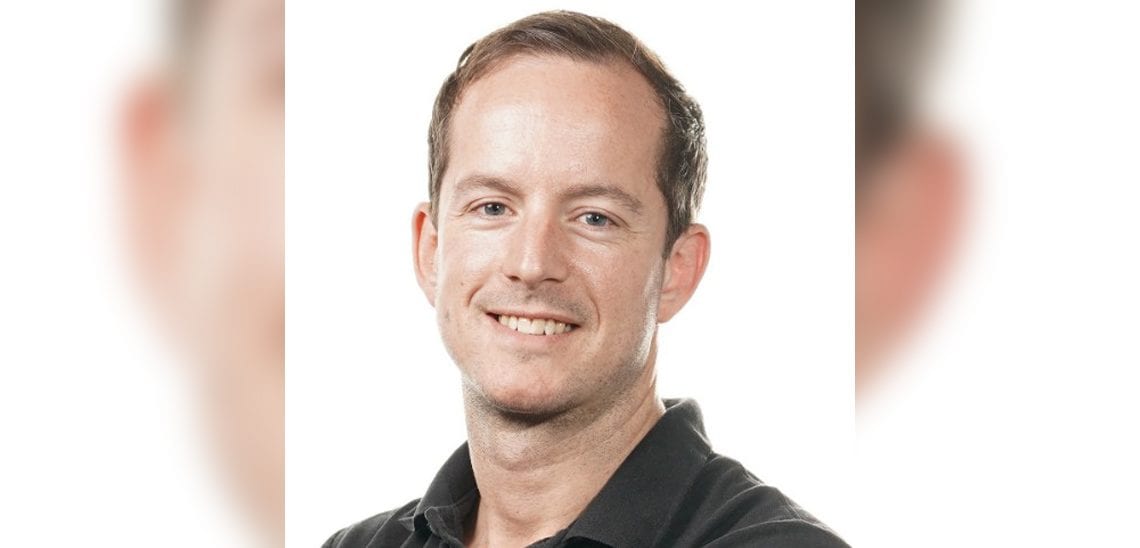Founder Feature: Steve Arnold, CEO of e-days


This week for our sixth Founder Feature series we are speaking to HR specialist and wellbeing advocate, Steve Arnold, CEO of e-days.
Championing employee wellbeing, Steve Arnold has been providing solutions that recognise employee mindset is critical to any business’s success – especially at the current time this article has been published, mid-way through the Covid-19 pandemic.
Steve shared his founder story, and provided insight into e-days and what they’re all about. Read the interview below.
Q: Could you tell us about your company and what you’re striving to achieve?
A: We’re a specialist HR Tech SaaS company. We exist to help companies expertly manage employee’s annual leave, sickness and wellbeing. Our platform also draws the link between employee ‘absence’ and ‘wellbeing’, and proactively helps deliver superior wellbeing management by signposting employees and managers to vital resources at the precise time that they need them. The platform is used globally by some of the biggest brands in the world.
Q: What made you decide to take on the challenge of founding your business?
A: We realised that managing annual leave, sickness and wellbeing is extremely complex and business-critical, with knock-on impacts for employees, managers, HR, payroll and finance. This complexity allowed us to focus on being the best, with an opportunity for market leadership.

We also recognised that the health and wellbeing of employees is so critical to the success of a company – and therefore we felt that if we could play a role in helping make a difference, it would create a valuable offering.
Q: Who are you and what is your story?
A: I studied Law at Uni, then went on to do a Marketing diploma and then an MBA at Warwick Business School. My aim was to try and become a rounded leader with enough knowledge across key areas of business. I met Chris (Co-founder) at a web development company which we became directors of, and this is where the E-days platform was incubated. We then carved E-days out as its own company once we felt we had product-market fit. Otherwise, I’m a family man, I have competitive spirit, I love playing sports and getting outside as much as possible.
Q: How are you measuring your success? What are your metrics?
A: We measure everything we can – users, customers, usage patterns, enquiries, conversions, sales productivity, costs of acquiring customers, lifetime value of customers, payback periods, churn ratios, rule of 40, net promoter scores, etc. All the key SaaS metrics. The key financial metrics however, are the total annual contract value across our business and the rate in which we’re growing that number per quarter. All the other metrics feed into these.

Q: What is your plan to adapt if your industry is completely disrupted?
A: Well, this interview is happening in the middle of the Covid-19 pandemic – so we’re in a massive period of disruption right now. Fortunately our business model is very strong with annual contracts, payable upfront – and the platform is a business critical, ‘keep the lights on’ solution. This means we’re far better-off than many businesses to weather the storm. Otherwise – more generally, employee health and wellbeing tech is going through massive positive disruption right now – with employers needing to do more particularly around mental health. We like to think we’re leading some of that disruption.
Q: How many hours of sleep do you get and what is your morning/evening routine?
A: I get a healthy 8 hours sleep each night. I go to bed early and get up early to take on the day – often with an early workout before I hit my desk. I have a very young family and I’m aware that everything I do is for them, therefore not being present for them makes no sense – so I try and ensure a healthy work/family balance.
Read More: Founder Feature: Nemo D’Qrill, Founder of Sigma Polaris
Q: What has surprised you in your journey so far?
A: How much you can get done and how good you can get at something if you really focus on one specific thing deeply. That’s what we’ve done at E-days. We set out to become the best in the world at absence management, then concentrated for years on that – and over time we became subject matters experts and leaders in our field. We worked harder at it than anyone else and kept our focus narrow.
Q: What has surprised you in your journey so far?
A: Before retiring, my dad was an architect – he wanted to design beautiful things and he stubbornly reworked designs over and over to deliver the best end result. He always told me I could do anything if I put my mind to it – but he also showed me that you have to have belief, focus and dedication to achieve things. This advice has helped me on my way.
Q: What’s one piece of advice you’d give to budding innovators taking the same journey?
A: 3 bits of advice:
1. Focus.
2. Listen to your customers – allowing you to innovate, and build services/solutions that they want.
3. Surround yourself with a brilliant team of positive, self-starting people with opinions.

Learn more by visiting the e-days website.